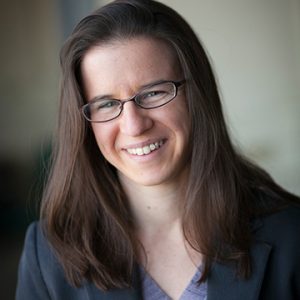Mary C. Boyce Symposium
Mary C. Boyce, professor of mechanical engineering, Provost Emerita of Columbia University, and Dean Emerita of Columbia Engineering, has been awarded the prestigious 2024 Benjamin Franklin Medal in Mechanical Engineering for her expertise in the nonlinear mechanics of polymers and the multiscale design of soft composite materials. The award cites her “transformative contributions to our understanding of the physical behavior of polymers, materials made of long chains of molecules, leading to innovative product development of rubber and other soft materials.” Read more about Boyce’s bio and research on me.columbia.edu.
Event Details & Registration
John L. Bassani, Symposium Chair
Location: Glandt Forum, Singh Center for Nanotechnology
Date: Thursday, April 18, 2024
Time: 9:30 am – 12:30 pm (light breakfast served at 8:30 am)
Zoom: https://upenn.zoom.us/j/97781006385
9:30 am — Opening Remarks from Vijay Kumar, Nemirovsky Family Dean of Penn Engineering, and Darryl N. Williams, Ph.D., Senior Vice President, Science, Education, and Human Resources, The Franklin Institute
9:35 am — Introducing Mary C. Boyce from John L. Bassani, Symposium Chair
9:40 am — Ellen Arruda, Mechanics of Soft Biological Tissues
10:00 am — H. Jerry Qi, Polymer Mechanics and 4D Printing
10:20 am — Meredith Silberstein, Coupling Mechanics, Chemistry, and Biology to Understand and Control Polymer Functionality
10:40 am — Coffee Break
11:00 am — Hansohl Cho, Mechanics of random microstructures: from polymers and crystalline metals to architected materials
11:20 am — Mary C. Boyce, Molecular and Micro-Structural Mechanics and Design of Soft Materials
11:40 am — Panel: Deformation from Molecules to Continua
Invited Speakers
Ellen M. Arruda
Tim Manganello / Borg Warner Department Chair and Maria Comninou Collegiate Professor, Department of Mechanical Engineering
University of Michigan
Title: Mechanics of Soft Biological Tissues
Abstract: This talk will briefly describe an interdisciplinary journey with a foundation in materials and solid mechanics, coupled with a growth mindset, that led to disruptions in scientific approaches in fields such as tissue engineering and biomechanics. I will detail our efforts in soft tissue biomechanics to refute established dogma of subject-to-subject variability in material property determination through continuous refinement and innovation in experimental methods for soft material testing and characterization. Examples include the anterior cruciate ligament (ACL) of the knee and the supraspinatus tendon (rotator cuff) of the
shoulder.
H. Jerry Qi
Professor, Woodruff School of Mechanical Engineering,
Georgia Institute of Technology
 Title: Polymer Mechanics and 4D Printing
Title: Polymer Mechanics and 4D Printing
Abstract: 3D printing (additive manufacturing, AM) has seen significant advances in recent decades. The recent merge of 3D printing with active materials has led to the emergence of a new emerging field of 4D printing. This talk presents the journey of our efforts from constitutive modeling of thermoplastic polyurethane, to multiphysics and mechanics of shape memory polymers, design of shape memory polymer-based active composites, and then to the establishment of 4D printing. We further introduce our recent efforts in developing multimaterial 3D printing methods. The talk will illustrate the importance of fundamental understanding of polymer mechanics and physics in driving the development of new fields.
Meredith Silberstein
Associate Professor, Sibley School of Mechanical and Aerospace Engineering
Cornell University
 Title: Coupling Mechanics, Chemistry, and Biology to Understand and Control Polymer Functionality
Title: Coupling Mechanics, Chemistry, and Biology to Understand and Control Polymer Functionality
Abstract: Dynamic covalent and non-covalent bonding in polymers can enhance mechanical properties and imbue polymers with non-mechanical functions such as ionic conductivity, self- sensing, and surface adaptivity. This talk will discuss how micromechanically-inspired constitutive models can be combined with experiments on specially designed polymers to establish structure-function relationships. Examples will include polymers for energy conversion technologies and control of biological adhesion. The talk will close with an outlook on how these same approaches can be applied to the emerging field of engineered living materials.
Hansohl Cho
Assistant Professor of Aerospace Engineering
Korea Advanced Institute of Science and Technology (KAIST)
 Title: Mechanics of random microstructures: from polymers and crystalline metals to architected materials
Title: Mechanics of random microstructures: from polymers and crystalline metals to architected materials
Abstract: Recent advances in additive manufacturing have led the emergence of new materials and devices architected especially on crystal lattices for synergies in mechanics, acoustics and photonics across a wide range of length scales. Long-range order in the architected materials on high symmetric crystal lattices often results in intrinsic, undesirable “anisotropy” in the physical properties. This talk describes a microstructure-topology-based approach to designing heterogeneous soft material architectures that exhibit near-complete isotropic resilience and dissipation in extreme mechanical environments, inspired by random microstructures widely found in synthetic or natural (co) polymers and (poly) crystalline metals. Examples of the extreme mechanics of (1) phase-separated elastomers and (2) refractory metallic polycrystals will be presented; then, the unusual, untapped resilience and dissipation in 3D-printed prototypes that mimic realistic random microstructures in the two representative heterogeneous materials will be demonstrated.
Mary Cunningham Boyce
Professor of Mechanical Engineering
Provost Emerita
Dean Emerita of The Fu Foundation School of Engineering and Applied Science
Columbia University

Title: Molecular and Micro-Structural Mechanics and Design of Soft Materials
Abstract: Soft synthetic and natural polymeric-based materials offer particular new avenues for the design and fabrication of materials and devices. Engineering the molecular and geometrical structures of the constituent materials, together with utilizing their ability to sustain large deformations enables materials and designs with novel properties and functional behavior. We begin with the development of physically-based models of elastomeric mechanics, from the elegant simplicity of the “8-chain” network model of rubber elasticity to the more complex enhancements that capture the molecular mechanisms of nonlinear time-dependent behavior. We also address the behavior of versatile co-polymers, which can form micro-composites of “hard” and “soft” domains, providing an ability to engineer unique combinations of highly resilient elastic and dissipative systems. The structure and behavior of natural analogs such as mussel byssal threads are included and shown to yield further insights. Finally, we present the ability to tailor constituent geometrical features of soft composites using new fabrication techniques including 3D printing. Exemplars include patterned and layered structures which exhibit deformation and instability-induced pattern transformations. These structural transformations result in concomitant changes in a multitude of behaviors giving super-elastic and multi-linear elastic response, enhanced mechanisms for energy storage, switchable band gaps, soft actuators, and morphable surface topology. Looking to the future, the predictive ability of multi-scale nonlinear mechanics of soft materials, combined with the rapid developments in fabrication techniques provide profound opportunities to truly design functional materials, devices and products.
Parking & Transit
There are a number of public parking garages in the area that can be utilized, as well as on-campus parking. For on-campus garages, we recommend Walnut 32, Chestnut 34, and Walnut 38.
If you are utilizing public transportation, William H. Gray III 30th Street Station is a 15 minute walk from the Singh Center for Nanotechnology and is a hub for Amtrak and SEPTA Regional Rail lines.


